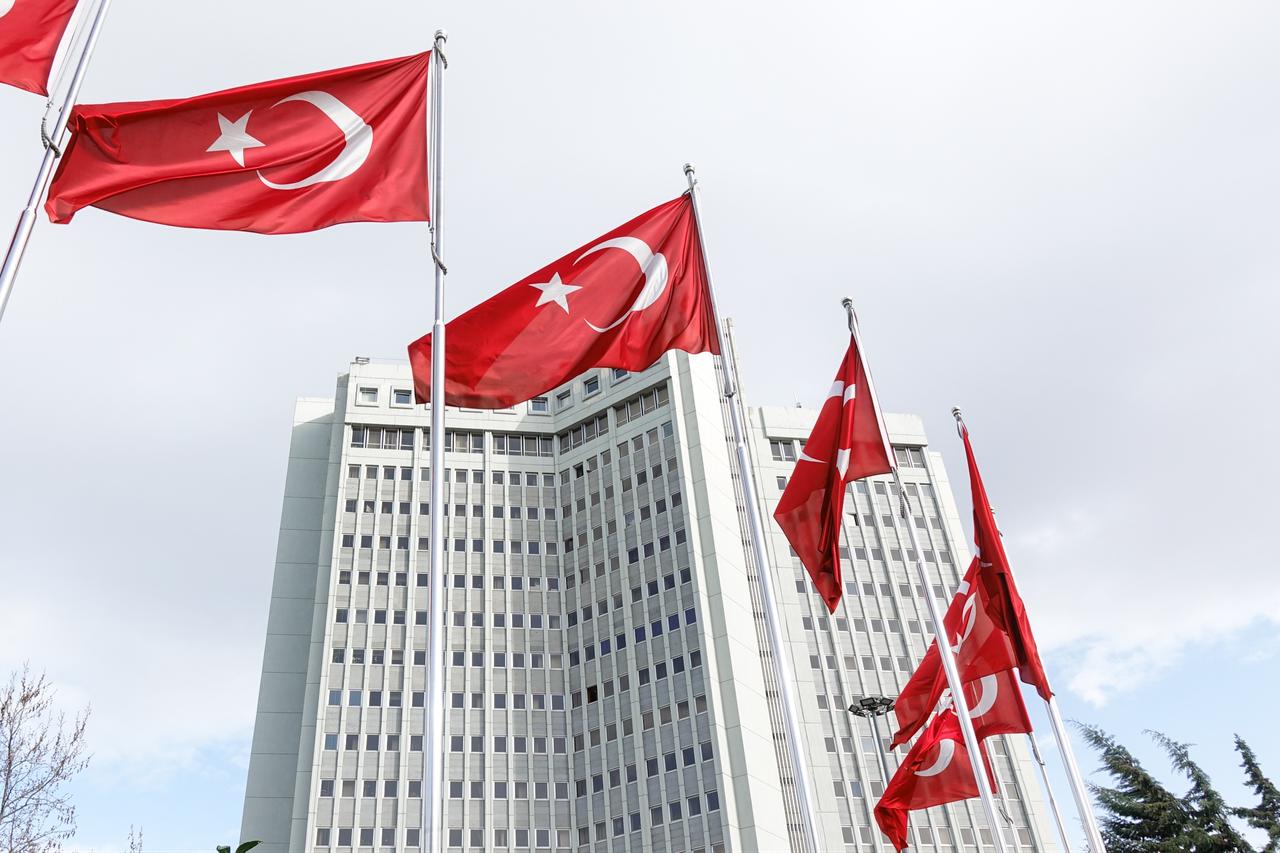
Turkish Foreign Ministry sources on Saturday denied claims that the country demanded Hamas disarm and release hostages, following reports about Türkiye's position at a recent United Nations conference on Palestinian statehood.
Foreign Ministry sources said claims regarding that Türkiye called for Hamas to release hostages and disarm were "not accurate," referring to statements made during the High-Level International Conference on the Peaceful Resolution of the Palestinian Question and Implementation of the Two-State Solution held July 28-30 at the UN General Assembly in New York.
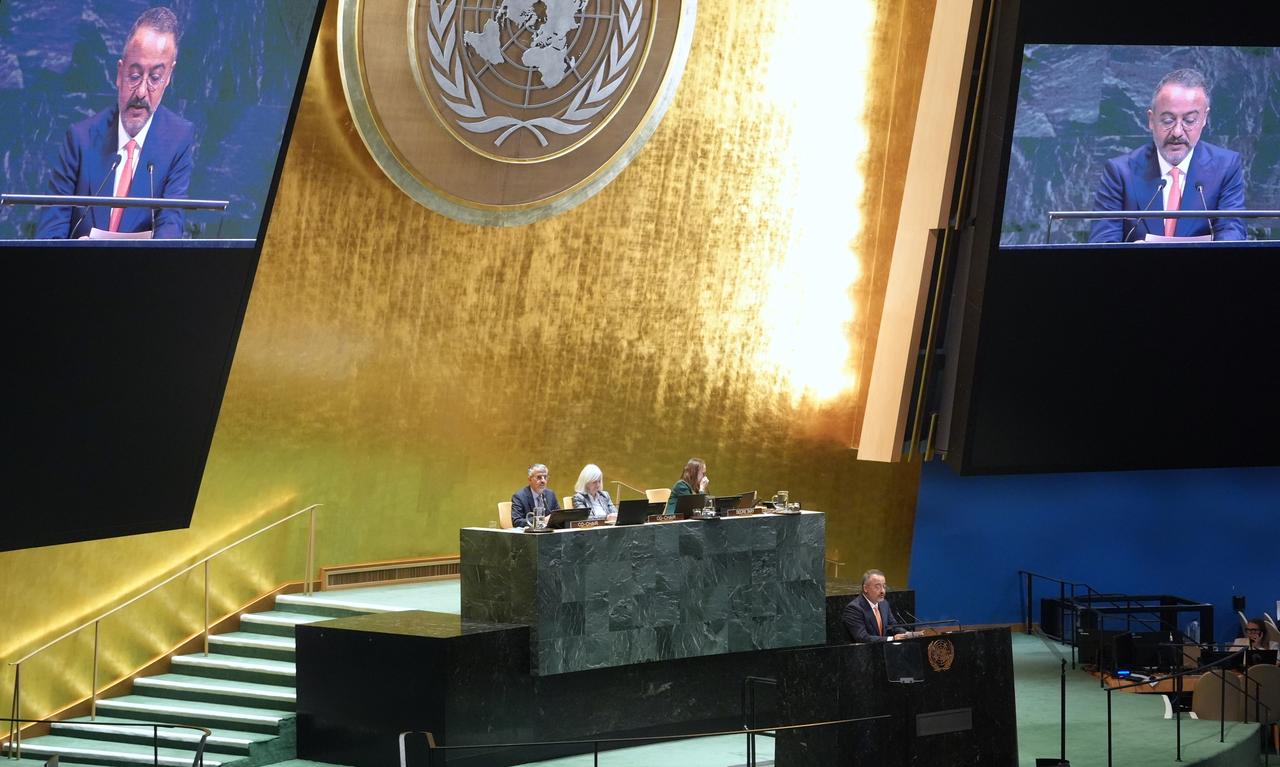
The conference, co-chaired by Saudi Foreign Minister Prince Faisal bin Farhan Al Saud and French Foreign Minister Jean-Noel Barrot, aimed to create a roadmap with concrete, time-bound steps for implementing a two-state solution.
Palestinian Prime Minister Mohammed Mustafa, Palestinian Foreign Minister Varsen Aghabekian, representatives from 122 UN member countries and six international organizations participated.
Deputy Foreign Minister Nuh Yilmaz represented Türkiye at the gathering, where 32 countries sent foreign ministers, 21 sent deputy ministers, and two sent special representatives. UN Secretary-General Antonio Guterres and UN General Assembly President Philemon Yang also addressed the conference.
Türkiye co-chaired one of eight working groups established during the conference - the Two-State Solution Preservation Working Group - making it "one of the main actors" in the event, according to ministry sources.
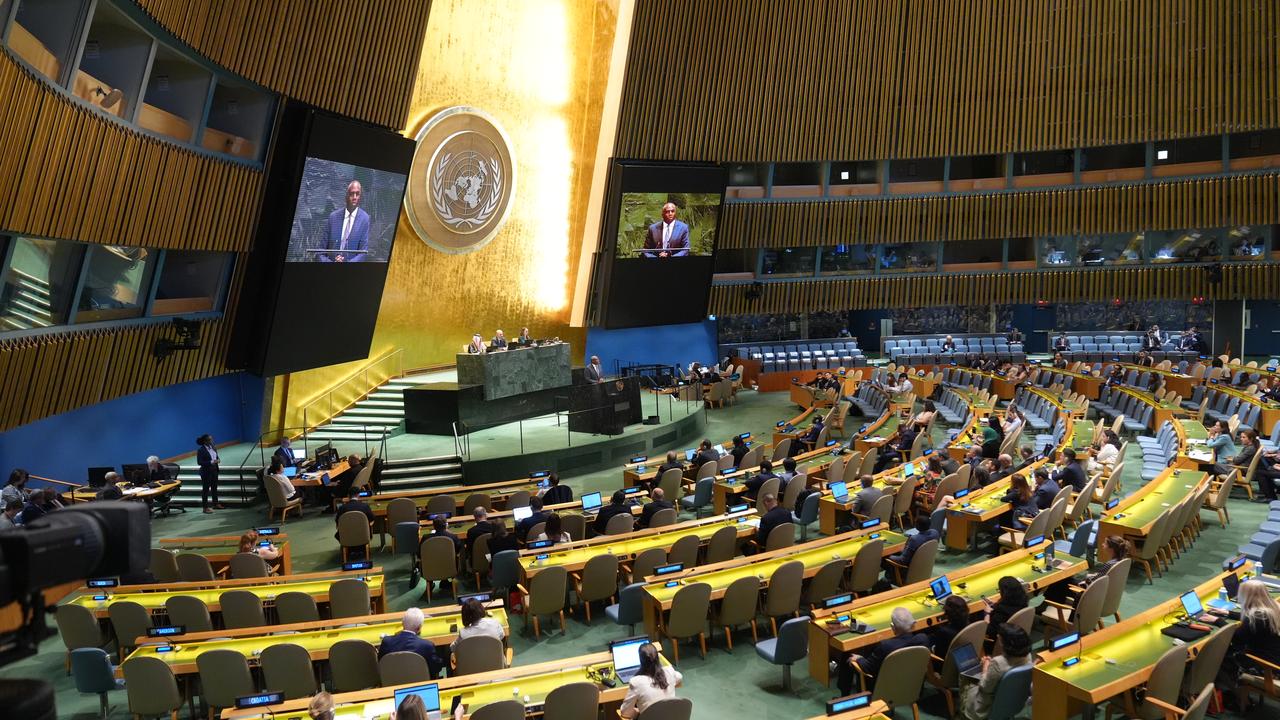
In his address during the Round Table Summary Session, Yilmaz emphasized the need for "urgent action against all illegal Israeli actions against Palestinians, ensuring accountability and preserving the two-state vision."
"A permanent ceasefire and uninterrupted humanitarian aid flow are urgently needed to stop the genocide in Gaza. Gaza’s future must be shaped by the will of the Palestinian people," he stated.
"Türkiye is ready to support Gaza’s reconstruction. We continue to support all initiatives toward a two-state solution, which is the key to lasting peace and stability," he added.
"A fair, lasting, and comprehensive solution to the Palestinian issue can only be achieved by establishing an independent and sovereign State of Palestine within the 1967 borders, with East Jerusalem as its capital," Yilmaz noted.
Yilmaz also noted Israel's recent obstruction of humanitarian aid and the growing famine in Gaza. "The root cause is the Israeli occupation. We once again underline our expectation for a full withdrawal of Israeli forces from Gaza," he said.
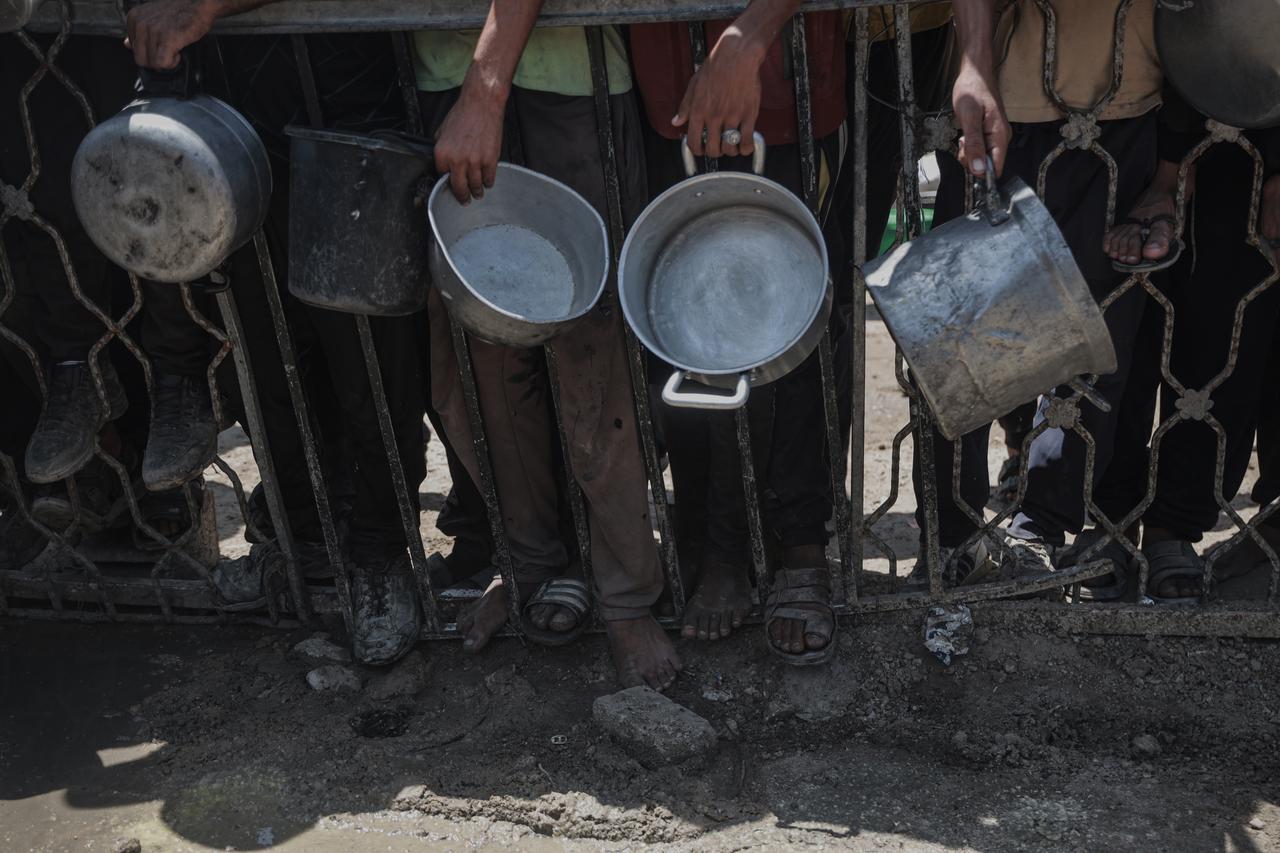
Regarding reports about hostage releases, ministry sources explained that while Article 8 of conference documents mentions Hamas releasing hostages, "this step is mentioned together with a ceasefire agreement in the same paragraph."
"Support is expressed for the efforts of Egypt, Qatar and the USA toward implementing all phases of a ceasefire agreement that will permanently end conflicts, where all hostages will be released, Palestinian prisoners will be exchanged in return, all bodies will be returned, and Israeli forces will completely withdraw from Gaza," the sources noted.
The ministry sources noted this expectation "is part of current negotiations."
On disarmament allegations, ministry sources said claims that Türkiye demanded "Hamas disarmament" were also inaccurate.
"Article 11 requests that Hamas end its administration in Gaza and transfer its weapons to the Palestinian Authority with international engagement and support, in accordance with the goal of a sovereign and independent Palestinian state," the sources explained.
The ministry sources revealed that while "disarm" language was initially included, "this expression was removed from both the declaration text and annex through our country's initiative, and Hamas's transfer of weapons was linked to the goal of establishing a sovereign and independent Palestinian state."
Türkiye's position was officially recorded: "Türkiye believes that, based on Israel's long-standing record, Palestinian armed groups' surrender of weapons must be strictly tied to the establishment of an independent, sovereign and contiguous Palestinian state within 1967 borders with East Jerusalem as its capital, or to an agreement reached between Palestinian groups within the framework of a reconciliation process."
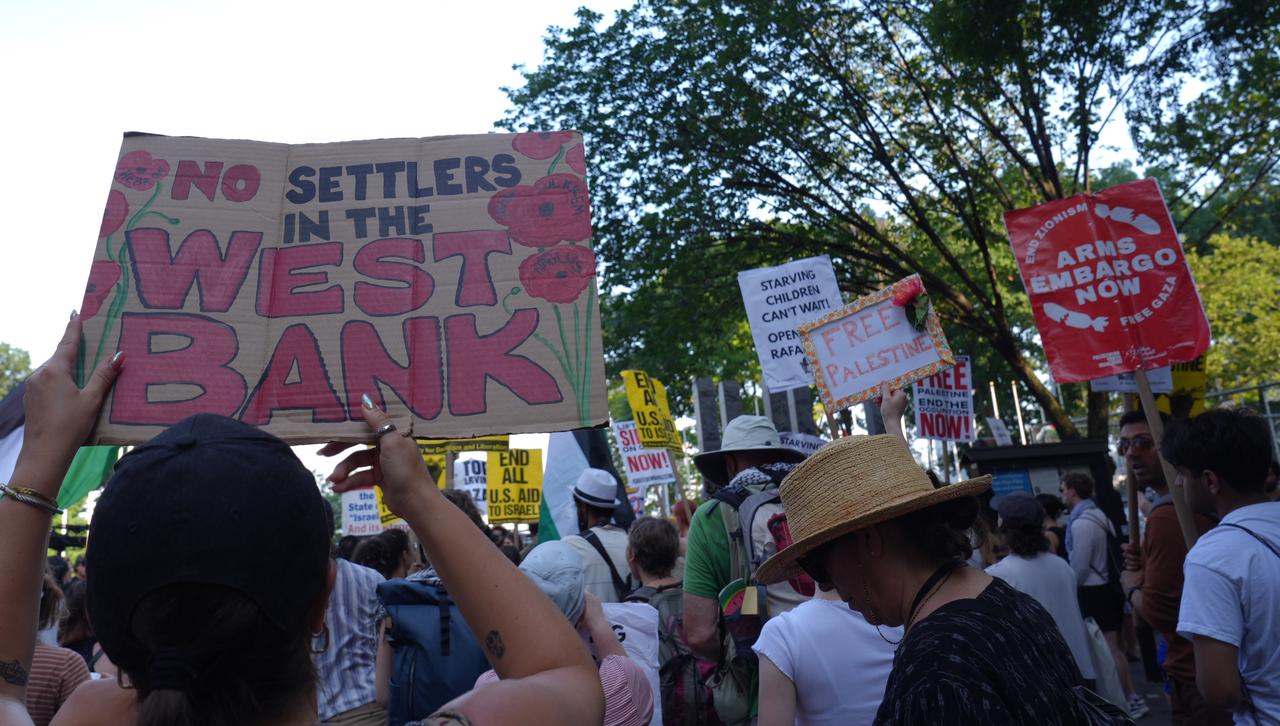
The conference produced the "New York Declaration on the Peaceful Resolution of the Palestinian Question and Implementation of the Two-State Solution," published on behalf of 19 co-chairs including Türkiye and opened for approval by all member states until September 5, 2025.
One significant outcome was momentum for Palestinian state recognition despite "intense pressure from the USA and Israel," according to ministry sources.
Before the conference, French President Emmanuel Macron announced France would recognize Palestine during the 80th UN General Assembly High-Level Week in September, making France "the first G7 and third UN Security Council permanent member" to make this decision.
During the conference on July 29, foreign ministers from 15 countries - Andorra, Australia, Canada, Finland, France, Iceland, Ireland, Luxembourg, Malta, New Zealand, Norway, Portugal, San Marino, Slovenia and Spain - issued a joint call expressing their desire to recognize Palestine or stating they would consider it favorably during the September UN session.
British Foreign Secretary David Lammy announced that "if the Israeli government does not act to end the horrific situation in Gaza, does not end its military operation, and does not commit to long-term and sustainable peace based on a two-state solution, the UK government plans to recognize the Palestinian State during the 80th UN General Assembly High-Level Week."
A head-of-state level meeting on the same topic is expected during the 80th UN General Assembly in September 2025, with several countries anticipated to announce their recognition of Palestine.